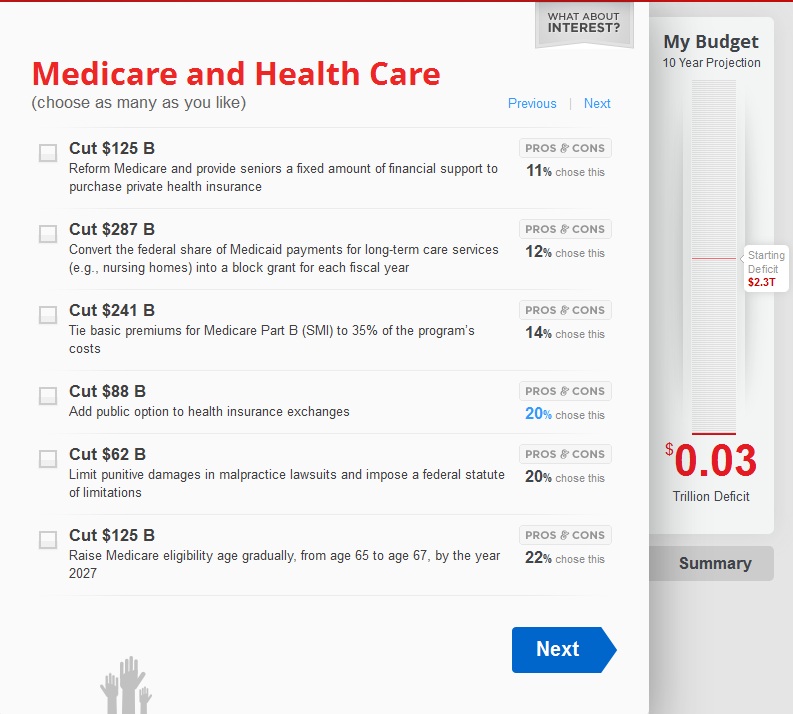The Concord Coalition and Next 10 Release Budget Simulator
Today, the Concord Coalition and Next 10 released a new budget simulator that allows participants to choose for themselves how to reduce our unsustainable budget deficit. The simulator presents a wide range of options on both the spending and revenue sides, and calculates with interest what the budget deficit or surplus would be over the next 10 years.
The simulator includes both deficit-increasing and deficit-reducing options. All options display the arguments for and against enacting each proposal. Balancing the budget is more than just arithmetic, and the simulator forces participants to make difficult choices and consider the impact of those choices.
The options are numerous, including raising the payroll tax cap, increasing Medicare premiums, eliminating farm subsidies, eliminating the mortgage interest deduction, and enacting Simpson-Bowles-esque tax reform. The simulator includes deficit-increasing options such as increasing spending on infrastructure and eliminating taxes on capital gains and dividends.
Here is an example of one of the pages.
Executive Director of The Concord Coalition Robert Bixby emphasized the importance of making these tough decisions and believed that the simulator will allow citizens to understand what will be needed in comprehensive debt reform:
This generation has been presented with significant challenges that we must begin to solve. The Federal Budget Challenge allows us to examine areas such as health care costs, taxes, education spending, and defense spending, and allows Americans to become a part of the conversation about the tough choices facing our country.
Next 10 Founder F. Noel Perry agreed that the decisions we make in a budget deal will affect all Americans, and that they should be informed about what will be needed.
Solving the deficit requires spending and tax choices that will affect us all, and the choices we have in front of us are not easy. We want Americans to make informed choices and become empowered to play a role in this important democratic process.
We encourage readers of the The Bottom Line to try the game, as well our own simulator, if you haven't already. The simulations differ somewhat in the options, and our goal is defined by debt as a percent of GDP rather than deficits. Still, both simulations show the difficulty of reducing our budget deficit, but also the opportunity to get our fiscal house in order if lawmakers are willing to make the tough choices. It will take leadership, but solutions are possible.


